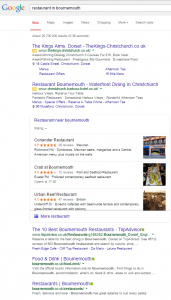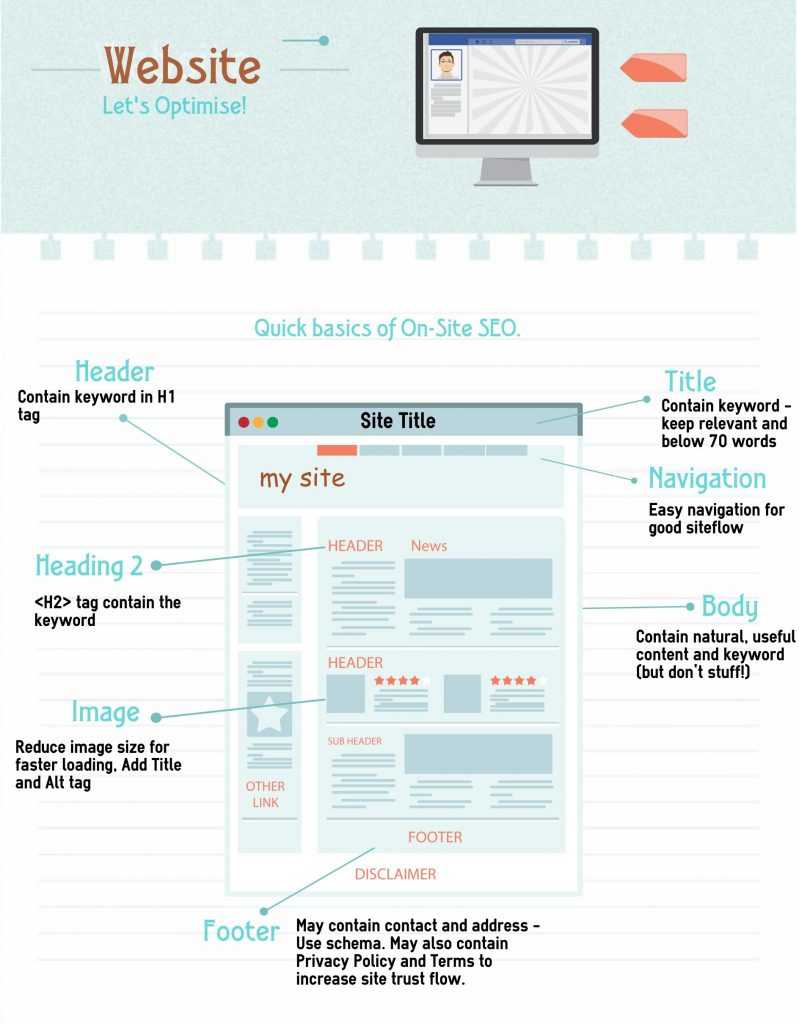Search Engine Optimisation (SEO) – Simplified

Trust me, it does sound simple…
What is SEO?
Getting your Website to rank higher in Search Engines!
But How?
Give the search engines what they want!
1. Have a very good website (Great content, images, site speed, page titles, headings, URL structure, responsive etc).
2. It’s a popularity contest! Measured by the amount of pages linking to your site and how popular those sites are.
So a good Website with lots of backlinks will get you a great ranking, sounds easy?
So.. What is a Good Website?
A little bit more complicated…
Contain Relevant Keywords
But don’t spam the page with irrelevant keywords or unnatural content and it should be in the right places (Title, H1, body etc).
Readable by Search Engines
Make sure the search engines see what you see, you can see a picture of a dog but a search engine won’t unless you tell it with the “Alt” tag. Add a sitemap, be careful with hiding content behind code and don’t block the crawlers with the robots.txt.
Good User Experience
Search Engines can tell if your website is useful for users. Website too slow? Users leave before entering. False advertising on meta description? Users leave disappointed. Happy visitors, happy search engines.
Mobile Responsive
Google will display mobile responsive sites higher than non-mobile responsive for users browsing through mobile. That’s a lot of users!
Quick Example of On-Site SEO!
My Website is Great, How do I become Popular?
In short, get Backlinks. Backlinks are other web pages linking back to your site. The more of this you have, the more popular and reputable your site is according to search engines.
Example of a backlink?
Wait, it’s also about WHO is linking to you!
Just like real life popularity contests, it’s also about who you know. The quality of the website linking to your site matters, a single link from a very popular website to yours could be worth a hundred links from unpopular websites. Sometimes, backlinks from spam websites can even damage your SEO.
How do we find out who is worth getting a link from?
My favourite tool is Moz toolbar which is free plugin on Chrome. If you have a subscription you can also use their Moz Opensite Explorer (https://moz.com/researchtools/ose/) . They give the DA (Domain Authority) and PA (Page Authority) ratings of the page. By no means are they definitive but it is a good guide for determining the quality of a page, the higher the better.
How do you get Backlinks?
There are so many ways to get backlinks but here are the basics.
Content Marketing
Write a great piece of article, contact sites that would have use for that great article and ask them to link to it. Maybe they are linking to your competitor but your piece is better?
Social Media Marketing
Add and follow friends on social media such as Facebook, Google+, Twitter, Pinterest. If someone finds your article useful, they may use it or share it. Got a great infographic? Post it on Pinterest and ask people to credit you with a backlink if they use it.
Guest Blogging
Offer to write for authoritative blogs and increase your reputation as well as get backlinks from the articles you write. Write great content for them as you would for your own site.
Social Bookmarking
Join forums/Quora/Yahoo answers etc and leave links to your site by way of author bio or through a link in a post. Only sign up to relevant sites and only leave link if it’s relevant and useful.
Directories
Heard of Yell.com, Yelp? There are any online directories to submit your business to, check out our list on Local SEO section.
Scout Competition
Using tools like Moz Opensite Explorer we can see our competitors’ backlinks. Study them and see if you can get one too.
Now you know the basics, want to read a more in-depth guide? Check out our Complete SEO guide!






